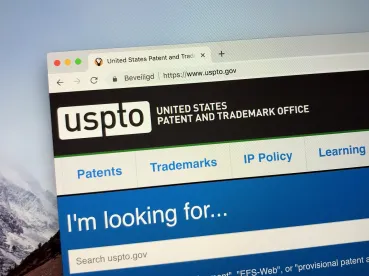The US Patent & Trademark Office Director partially vacated the Patent Trial & Appeal Board’s real-party-in-interest (RPI) determination because that determination was not necessary to resolve the underlying proceeding. Unified Patents, LLC v. MemoryWeb, LLC, IPR2021-01413, Paper 76 (PTAB May 22, 2023) (Vidal, Dir.)
Unified Patents filed a petition requesting inter partes review (IPR) of a patent owned by MemoryWeb. In its petition, Unified certified that it was the only RPI. Prior to institution, both parties briefed whether Unified should have identified two third parties as RPIs under 35 U.S.C. § 312(a)(2). In its institution decision, the Board declined to determine whether the third parties were RPIs because there was no allegation in the proceeding of a time bar or estoppel based on there being an unnamed RPI, and therefore the proceedings would not have created a time bar or estoppel under 35 U.S.C. § 315 even if the third parties were included as RPIs.
After institution, MemoryWeb continued to argue that the Board should terminate the proceeding because of Unified’s alleged failure to name the third parties as RPIs while also arguing that in the alternative, the Board should find the two third parties estopped from challenging the validity of the claims at issue in two different IPRs covering the same patent. The Board then issued an order identifying the third parties as RPIs, explaining that it was now appropriate to determine whether the two third parties were RPIs “[b]ecause the issue of Section 315(e) estoppel has been put before us [as relevant to the subsequent IPR challenges filed by the third parties], and we now have a complete factual record available to fully address the RPI question, and to avoid unnecessary prejudice to Patent Owner.” The Board also explained that it was now necessary to determine whether the third parties were RPIs in the case at hand to determine whether they would be estopped in a subsequent proceeding.
Unified filed a request for Director review of the Board’s RPI determination. Unified argued that the panel erred by issuing a non-binding advisory opinion on RPI that prejudiced the third parties by prejudging the RPI issue without their participation and where the decision could bind them in their later-filed proceedings. Unified also cited the Board’s precedential decision in SharkNinja v. iRobot, arguing that the Board should not resolve an RPI issue when it would not create a time bar or estoppel under 35 U.S.C. § 315 in the proceeding.
The Director concluded that the Board can and should determine the RPIs or real parties in privity in a proceeding where that determination may impact the underlying proceeding, including (but not limited to) a time bar under 35 U.S.C. § 315(b) or estoppel under 35 U.S.C. § 315(e) that might apply. However, the Director determined that such was not the situation here since determining the RPI issue was not necessary to resolve the proceeding. The Director, therefore, vacated the Board’s RPI determinations.




 />i
/>i
